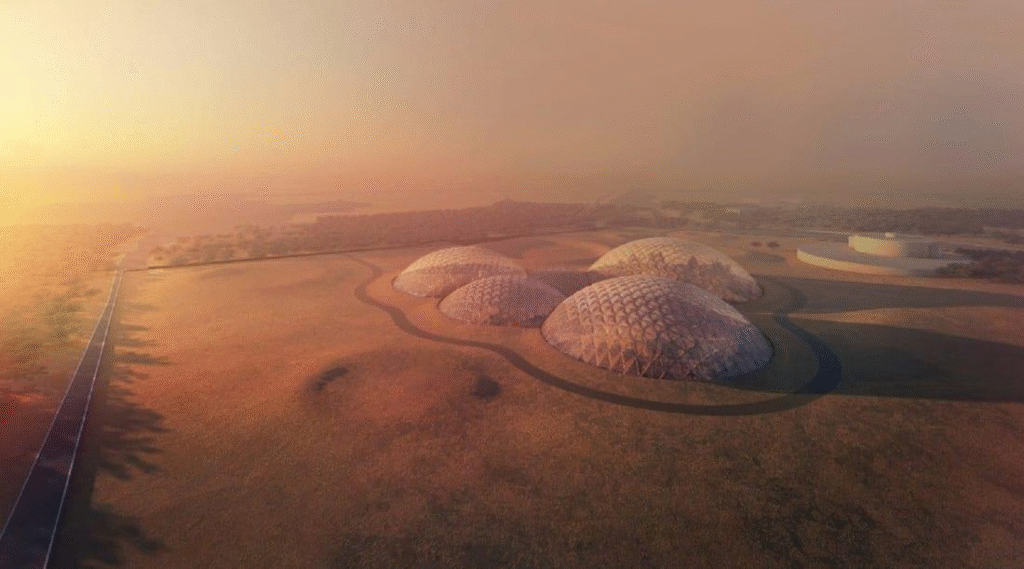
The United Arab Emirates has achieved something that only a few nations in the world have managed to do carve out a Future strong presence in space exploration. With the success of the Hope Probe, which entered the orbit of Mars in February 2021, the UAE became the first Arab country and the fifth in the world to reach the Red Planet. This historic achievement was not just about science; it was a statement of ambition,Future innovation, and vision for the future.
Today, the UAE is pushing forward with new space projects, aiming to position itself as a leader in the global space race. From interplanetary missions to astronaut programs, the UAE’s space Future journey is inspiring millions around the world.
The Hope Probe, officially known as the Emirates Mars Mission, was launched on July 19, 2020, from Japan’s Tanegashima Space Center. After a journey of nearly seven months, it successfully entered Mars’ orbit on February 9, 2021. This was a proud moment not only for the Future UAE but also for the entire Arab world.
The mission’s main goal was to study the Martian atmosphere and understand its weather patterns, including how it loses hydrogen and oxygen into space. Unlike other Mars missions that focus on the planet’s surface, the Hope Probe was designed to provide a complete picture of the planet’s atmosphere over the course of a Martian year.
This groundbreaking mission demonstrated the UAE’s ability to combine scientific expertise, international collaboration, and national determination to achieve something extraordinary. It was a clear message that the UAE is not just focused on oil and business it is building a future driven by science, technology, and exploration.
Some may ask, why is the UAE investing in space? The answer lies in the country’s long-term vision. The UAE leadership, particularly through initiatives like Vision 2071, aims to prepare the nation for a future that is knowledge-based and sustainable. Space exploration plays a big role in this vision.
By investing in space, the UAE is not only contributing to global science but also developing its own talent. The Hope Probe was designed and developed by a team of young Emirati engineers and scientists, many of them women. This reflects the country’s focus on empowering its youth and making them active participants in shaping the future.
Space technology also has direct benefits on Earth. From satellite communications to climate monitoring, the UAE’s space program supports innovation that can improve lives and boost the economy.
The success of the Hope Probe was only the beginning. The UAE has already announced several ambitious projects that go far beyond Mars.

The UAE is planning its first mission to the Moon, known as the Rashid Rover. This project aims to land a small rover on the lunar surface to study soil, dust, and other conditions. It will be the first Arab mission to the Moon and another step in building scientific expertise.

Perhaps the most futuristic of the UAE’s plans is the Mars 2117 Project. Announced in 2017, this long-term vision aims to build a human settlement on Mars within 100 years. While this may seem like science fiction today, the UAE is already laying the groundwork through research, partnerships, and new technologies.

The UAE has also entered the human spaceflight arena. In 2019, Hazzaa AlMansoori became the first Emirati astronaut to travel to space, spending eight days aboard the International Space Station (ISS). Since then, the UAE has expanded its astronaut program, training more astronauts for future missions. In 2023, astronaut Sultan AlNeyadi made history by completing the longest Arab space mission, spending six months aboard the ISS.
These achievements show that the UAE is serious about developing a complete space ecosystem covering everything from robotic missions to human exploration.
The UAE’s space success has not happened in isolation. The country has built strong partnerships with leading space agencies such as NASA, the European Space Agency (ESA), and Japan Aerospace Exploration Agency (JAXA). These collaborations have provided the UAE with access to advanced technologies and expertise, while also showcasing the nation as a reliable partner in global science.
International recognition has followed. The Hope Probe’s success was praised by scientists and world leaders alike. It positioned the UAE as a symbol of progress and ambition in the Arab world, inspiring other countries to invest more in space exploration.
Perhaps the greatest impact of the UAE’s space journey lies in its ability to inspire. For young Emiratis, the Hope Probe and astronaut missions serve as proof that no dream is too big. Schools and universities across the country are now putting more focus on science, technology, engineering, and mathematics (STEM) education.
By showcasing homegrown scientists and astronauts, the UAE is motivating a new generation to pursue careers in research, innovation, and exploration. This is crucial for building a sustainable future, not just for the UAE but for the world.
Of course, space exploration is not without challenges. Missions are costly, risky, and technologically demanding. The UAE must continue to balance its ambitions with realistic goals and global partnerships. But if the past few years are any indication, the nation is ready to face these challenges head-on.
The UAE’s journey into space is still in its early stages, but it has already left a mark on history. From the Hope Probe circling Mars to astronauts conducting experiments aboard the ISS, the UAE has proven that it can dream big and achieve even bigger.
As the country looks to the future with lunar missions, Mars settlement visions, and more astronauts in space it is clear that the UAE is not just participating in the global space race. It is becoming a leader in it.
For the UAE, space is not the final frontier. It is the beginning of a new chapter one that will define its place in the world for generations to come.
READ MORE:- Inside the World of Business Acquisitions: Secrets of Corporate Growth 2025
